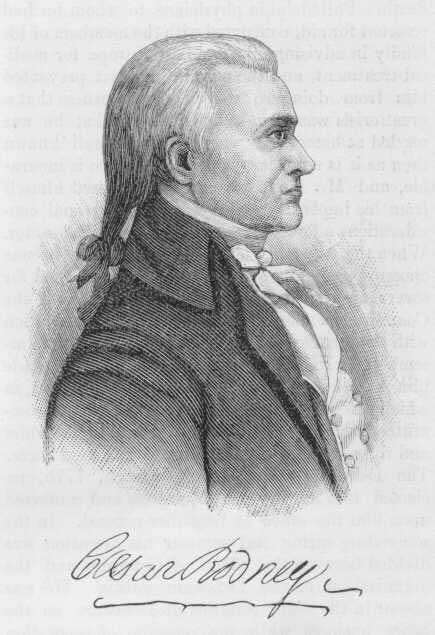In 1755, at the age of 22, Rodney was commissioned as High Sheriff in Kent County, Delaware.
He went on to hold positions as registrar of wills, recorder of deeds, clerk of orphan’s court and justice of the peace. At the age of 30 he won his first elected office as a representative in the colonial legislature in New Castle, Delaware. From 1776 to 1784, he assumed a seat as representative to the Upper House of the State of Delaware.
Rodney was a leading patriot in his colony, a member of the Stamp Act Congress in 1765, a Delaware Governor, a formative member of the Delaware Committee of Correspondence, a military leader in the colonial militia, and a delegate to Continental Congress from formation until 1777, and he was a signer of the Declaration of Independence. Like Paul Revere, Rodney is famous for his midnight ride from Delaware to Independence Hall where he cast the decisive Delaware vote for independence. In 1778, he was elected to a three-year position as President of the State of Delaware while he maintained his position as Major General of the Delaware Militia. In his military position he played a major role in the defense of his own colony as well as supporting Washington’s Continental Army during the American Revolution.
Rodney suffered from asthma and a cancerous growth of the face. In 1782 he was again elected to the National Congress but was forced to decline due to his diminishing health. In spite of this, he continued to serve as Speaker of the Upper House for the State of Delaware until his death in Delaware in June of 1784.


